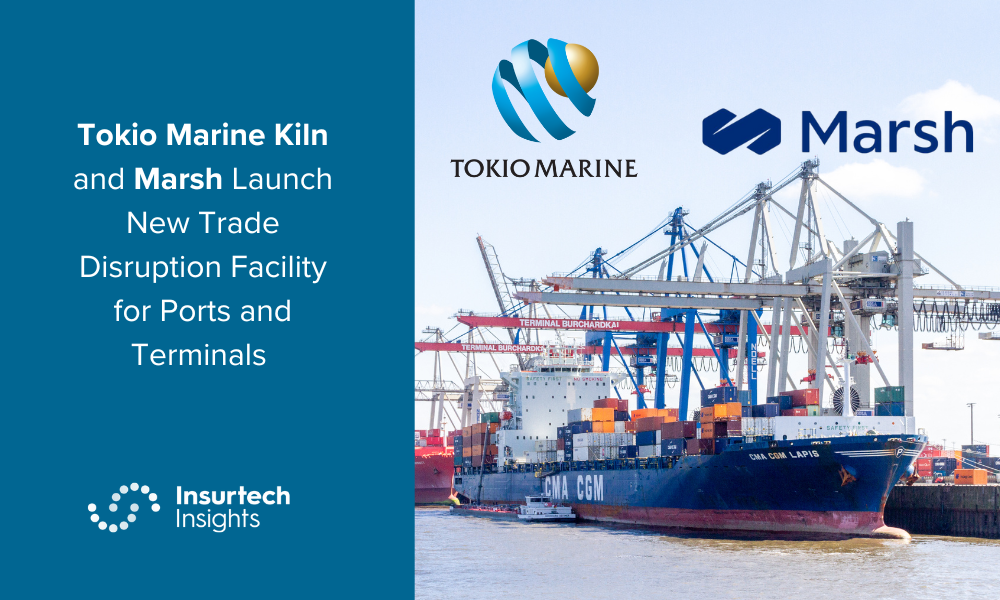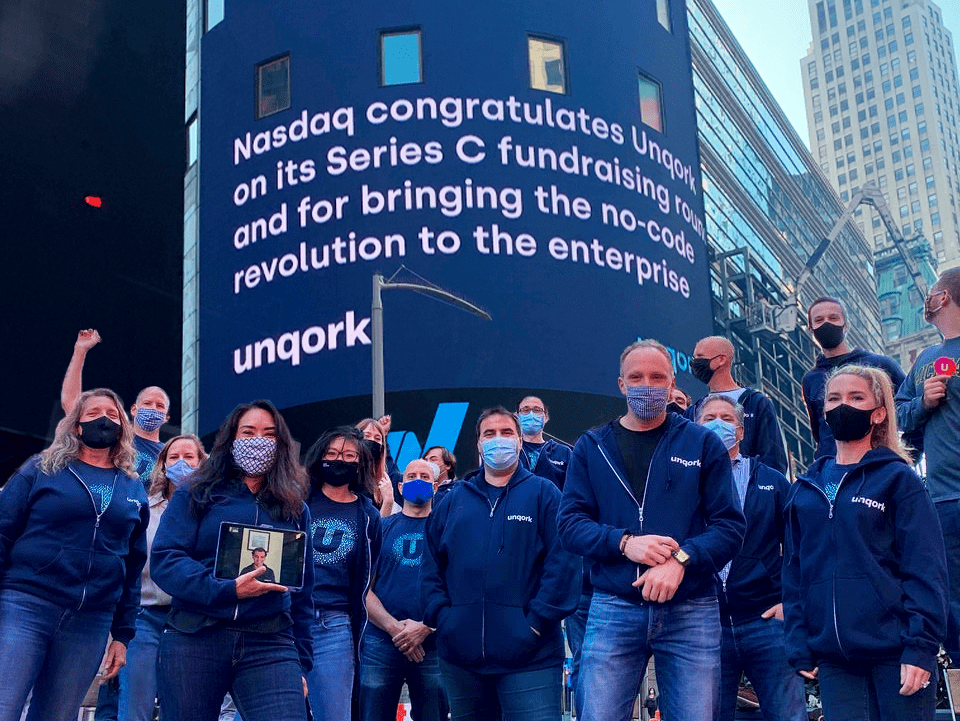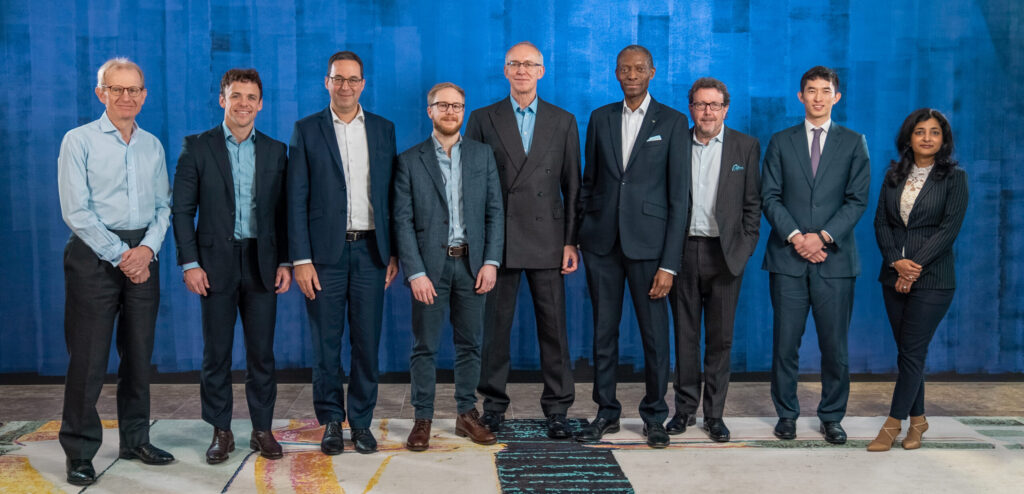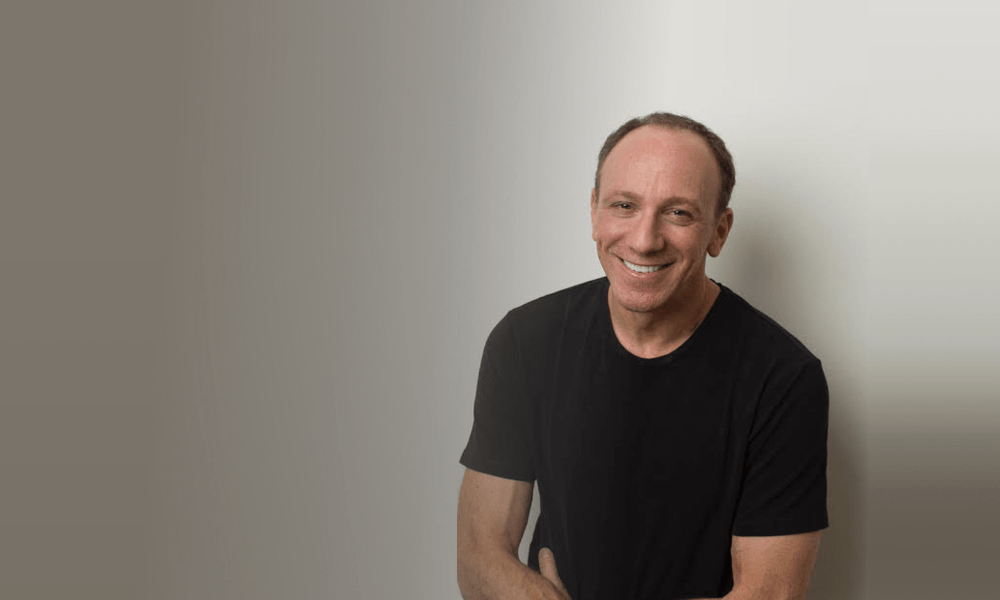Finding solutions to problems – especially those that are tech-related – has become a life-long mission and passion, for entrepreneur and Unqork CEO, Gary Hoberman. He pioneered the codeless architecture standard, helping organisations build complex, custom software faster, with higher quality and lower costs than code-based methods. And he has spent the last 25 years innovating and bringing transformative solutions to market.
Before he founded Unqork in 2017, he served as Executive Vice President and Global CIO for MetLife, overseeing technology across 47 countries, and was one of the youngest Managing Directors in Citi’s history. He holds seven patents, six of which are still in use in the finance industry today.

Gary founded Unqork to break through the biggest barrier to growth he saw serving in technology leadership roles at Fortune 500 organisations, namely, code. He then invented the first completely visual, enterprise-grade codeless platform and pioneered the codeless architecture standard, helping organisations build complex, custom software faster, with higher quality and lower costs than code-based methods.
In 2020, following its Series C funding round, Unqork recieved a US$2 billion valuation. Today, the insurtech’s customers include Goldman Sachs, Marsh, Liberty Mutual, Maimonides Medical Center, New York City and the District of Columbia.
Not content with turning technology on its head, he was also named a New York Entrepreneur of the Year by EY and one of Goldman Sachs’ 100 Most Intriguing Entrepreneurs in 2020 and 2021. Additionally, Unqork has been named Fast Company’s #5 Most Innovative Enterprise company in 2022, Forbes’ Best Startup Employers 2021,2022 and 2023.
Before Gary’s appearance at Insurtech Insights USA 2023, we caught up with him to find out more.
Technology has been an overriding theme in your career. What was it that piqued your interest and how did that then translate into your career with a Fortune 50 insurance company?
Yeah, definitely. I always believe that technology is magical. It’s an art form and I got to see firsthand through my father, who was an entrepreneur and created a publishing business. What that meant was, in the earliest days he had access to advanced computers at the time, everything from punch card machines to desktops.
In those days they allowed you to leave school to go home for lunch, and even in elementary school, as a fifth grader, I would walk to his office and eat a very quick lunch and then immediately jump on these machines. I’d use them to index my comic books, and play with the latest algorithm. I loved communicating with machines and seeing them respond. It’s magical. So I always knew I’d be in technology and I had so many ideas of how to apply it to everyday life. I see technology as a way to move society forward. It’s what it’s all about.
How did that translate into you becoming the CIO of a Fortune 50 company – and now the founder of your own extremely successful company?
After business school, I realised the best place to apply technology was Wall Street. That’s where nanosecond response time, reliability and all the challenges of a trading platform or a managed account system become real. And to me, that’s really exciting. Right after college, I started on Wall Street and at the same time I began teaching at NYU where my alma mater was focussed on how to build advanced software. I did that for seven years while continuing to climb up the corporate ladder and I taught so that I could stay very close to the latest technologies and relevance. And in 1994, the first platform I built was at Bankers Trust.
I always say the best engineers are the laziest. And what I mean by that is, they’re trying to solve a problem. And when they start looking at a problem and tackling it, the first thing they do is to see who else has already solved it. That is their starting point so they don’t end up replicating work. I was 22, I was asked to build a money transfer system, and I looked at it and I said, ‘yeah, this should be pretty easy. And if I do it well, I bet they’ll ask me to build another one and another one, and pretty soon I’m gonna be bored out of my mind. So, why not create a platform that generates the transfer system instead?
That’s a radical idea. How did it take your career forward?
Well, it was 10 years ahead of Salesforce when it came out. And the technology enabled every transaction in the private bank of Bankers Trust to be automated within six months. And it was generating code automatically. It was writing code. Instead of me writing it. I taught the computer how to write the code instead of me, and this allowed me to really focus on the configuration of that. And it was the first platform and it was really the earliest glimpse of whatever, wherever we are today with code generators. But then from there, I went to Smith Barney, where I stayed for 16 years and I was one of the youngest managing directors in technology there. And I found myself influencing US$9 billion spent every year in technology.
You also have several prominent patents from your personal engineering projects, so how did that lead you to insurance?
Yes. I had six patents for the work I did on Wall Street at Citigroup – and many of those still power the greatest companies today on Wall Street. But I jumped to insurance in 2012 because a former Citi boss of mine called me up, and said he worked for MetLife, and he needed some help. I didn’t know anything about insurance, but I learned quickly and I joined him in 2012 as his Global CIO. I had 10,000 engineers working for me, spending over $1.2 billion a year in expenses. And it was a big learning experience for me. Technology, I find easy. What I always strive to do is to learn the business and learn and understand every aspect of the business. MetLife covers every insurance product from P&C to life to annuities and healthcare. It was an amazing learning curve to understand insurance. In 2017, I left Metlife to launch Unqork.
Was entrepreneurship always on your radar? Or was it a slow-burn realisation to founding a company?
I’ve always believed in entrepreneurship. And I’ve always believed, even in the largest companies like Citigroup, when there are 400,000 employees, that every company needs to have entrepreneurs inside their company driving change and moving forward. But when we launched the company (and I self-funded), We wanted to show the best enterprises in the world that we’re here to ‘uncork’ all that’s been built up over time. It’s about streamlining through all the bureaucracy. But when we tried to register the domain for uncok.com spelled correctly they wanted $500,000 to buy the domain. So, we went with Unqork, which switched the fee to $14,95 at GoDaddy.
That sounds like a smart business decision.
It was a smart business decision. And it’s so funny because the name has stayed and, and when you think about the vision and where we are, Unqork is extending this history of abstraction that’s occurred in technology. Abstraction is a technical term that means we’re no longer working in bits and bytes and ones and zeros when we communicate with the machine. And we’re no longer worrying about servers because, cloud has abstracted away the data centres.
This history of abstraction we’ve been through from the earliest days is what I’ve lived through. Everything from that first system in 1994, all the way through Citigroup, and the technologies might have changed, but the concept of abstraction has always been in my head and Unqork is the ultimate abstraction. It’s reached the level where we could build anything without any language needed at all to describe it, which is, it’s been a dream of mine since the beginning.

What leadership qualities have you had to develop to bring you to this point in time?
Absolutely. Everything I’ve learned through all the programming and training I’ve done in my career comes down to one factor, which is, we always have a hidden bias to hire people like ourselves. That means people that look and think and talk like us. And that’s because it feels comfortable to us. But when you leave an interview and you feel great, because that person was like you and thinks like you, they are not necessarily the best person you should hire. The reality of life is that the most successful businesses have to be built with diversity and mindset, diversity and thought – and you only find that with people that challenge you.
My biggest principle is; always hire people and bring talent that’s completely the opposite of who you are. They need to compliment you and push you, but they do not have to think exactly like you. And with that diversity and mindset throughout the organisation, it plays through because people feel open to innovate and do things differently.
That’s the message you need. Every company needs to feel like they’re able to thrive with the talent they have. And number one thing is bring in people that actually challenge you and don’t just regurgitate what you feel and think.
When you first started out with this back in 2017, did you envisage the type of success that you have now? Or, or has it surprised you?
When I left the corporate world as a CIO in 2017 to create Unqork, I could have sworn I would be welcomed by the venture community that I knew I was close to and that all the investors would pitch us ideas and bring startups. And what I quickly found was, they looked at me very differently. The comments I heard was, I was too old, that I should have had three startups by now. And I also heard that if you spent one year at Citigroup, there’s no way you could be CEO of a company.
They didn’t understand that this was something I’d lived and breathed for my whole life. And I saw there was this opportunity to change the way software works and change the software world. So I self-funded the company. I didn’t raise money, and we actually had revenue from customers before investors funded us. That’s unusual, but I was so convinced of the team around me. My leadership team is incredible. And most importantly, large enterprises like Liberty Mutual or Principal were also convinced that there was a market fit.
It sounds as though you had a lot of challenges initially.
Absolutely. I wouldn’t say it was like an ‘aha moment’ of success. Determination and grit were essential factors – and the fact that I knew our solution was the key to so many problems. When I was at MetLife as CIO, all I kept seeing was that 80% of my budget was spent in just keeping the lights on. And that is a miserable proposition. Most of my day was spent talking about things which added no value to any shareholder. And just 20% investment was going towards the future. And now it’s 81%. The aha moment for me was this vicious cycle where the more things we try to innovate and build or upgrade, the worse off the company becomes. And that’s throughout every single enterprise, small, medium, large company. The more they’re creating with technology, the worse they’re setting their future off for the company, which is completely contrary to what technology should do for them.
Which three trends are going to be playing the most important role in transforming insurance over the next five years, in your opinion?
Embedded insurance is a topic we regularly talk about. We see that as such an opportunity for customers to be offered a product on the spot that they might not have even known existed or even know they needed. But we need to make sure they have a choice by creating partnerships and ecosystems around different product lines, which I believe will continue to grow and expand.
Smart monitoring is another big trend. When you think about ensuring an asset, whether it’s a home, a car, or a person, all the technology improvements we’re seeing are around, involving smart monitoring. It’s strange to think about it from a life insurance perspective. We need to think about how we leverage these devices and data with regulators in mind – and How we actually create products that work in 50 states.
The third trend, I would say, is my own passion – which is connectivity. We are in insurance, we’re in banking and capital markets and asset management, and of course we’re in healthcare and public sector. So we are in all the major industries. If you get married in New York City, you used Unqork.
For example, my son just passed his road test, and he’s going to get his driver’s licence next week. The idea scenario would be that as soon as he’s passed his test, I get a text on my phone saying, “Hey, congratulations, we see your son pass his road test. You have, uh, x insurance currently. Would you like us to add your son automatically with the same coverage in your policy?”
That data, collected in the public sector, connected to the private sector, could be used to benefit the consumer immensely. And that’s the place that I’m really excited by. Imagine you got married and at the end of the marriage licence process, you were asked, by the way, would you like us to add your spouse to your life insurance policy as a beneficiary? Or would you like us to open a joint bank account for the union? That’s what I want as a consumer. I want policies that are connected. That’s where I would love to see the insurance industry going.
What inspires you in InsureTech today?
What I love about insurance is it protects people and their future. It gives you the ability to step back and feel lighter as you go through the day with the products that are offered. To me, there’s this concept that the company that I’m trusting to protect my family will be here for the next hundred years and take care of them wherever they are.
There is tremendous trust in these institutions and we look to ‘uncork’ these amazing companies that have been around for so long, because data will enrich them and will push them forward.
But from a consumer point of view, the insurance industry is a really good business. It’s there to help someone out and give them the comfort that they’re going to be taking care of. That’s what I learned at MetLife when I was there. It’s about meeting the customers and seeing how they trust us and believe in us. It’s a huge inspiration to me.
JOIN Unqork at Insurtech Insights USA 2023
Gary Hoberman is giving a keynote presentation at Insurtech Insights USA 2023, on June 7th and 8th at the Javits Center in New York. His presentation covers his journey into technology innovation, and is titled: “It Takes a Rebel”
For more information, visit here










